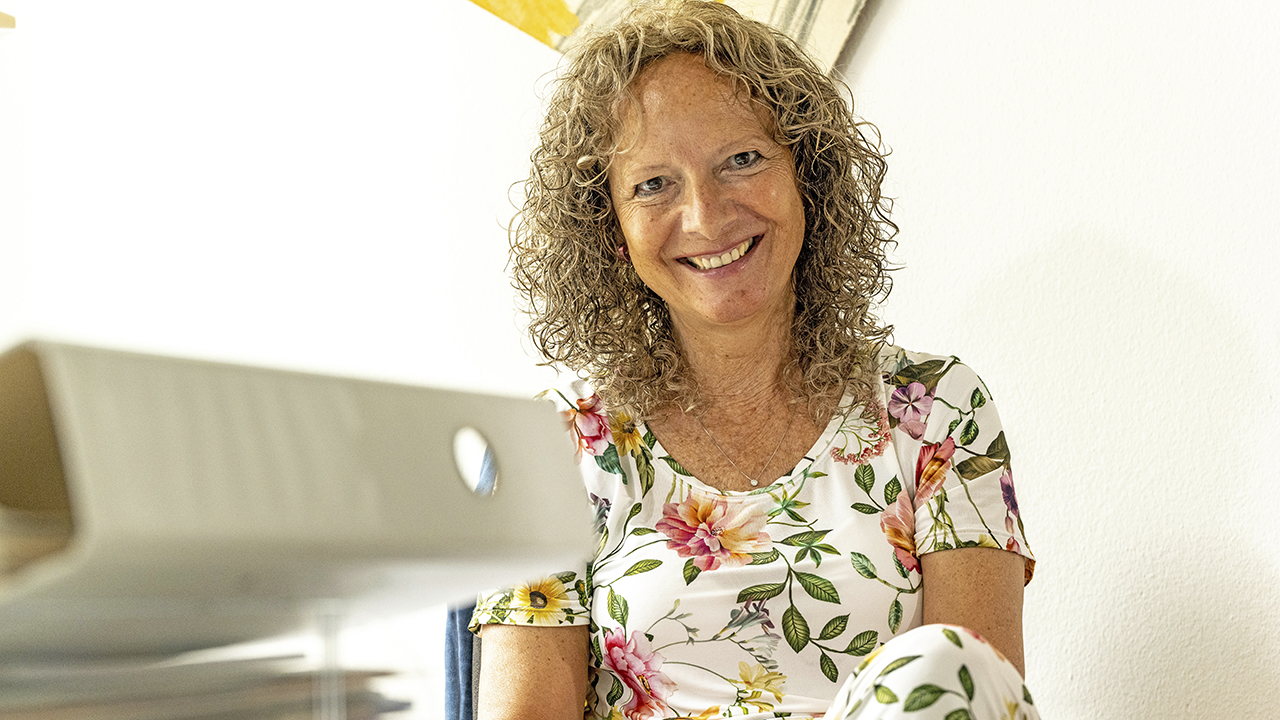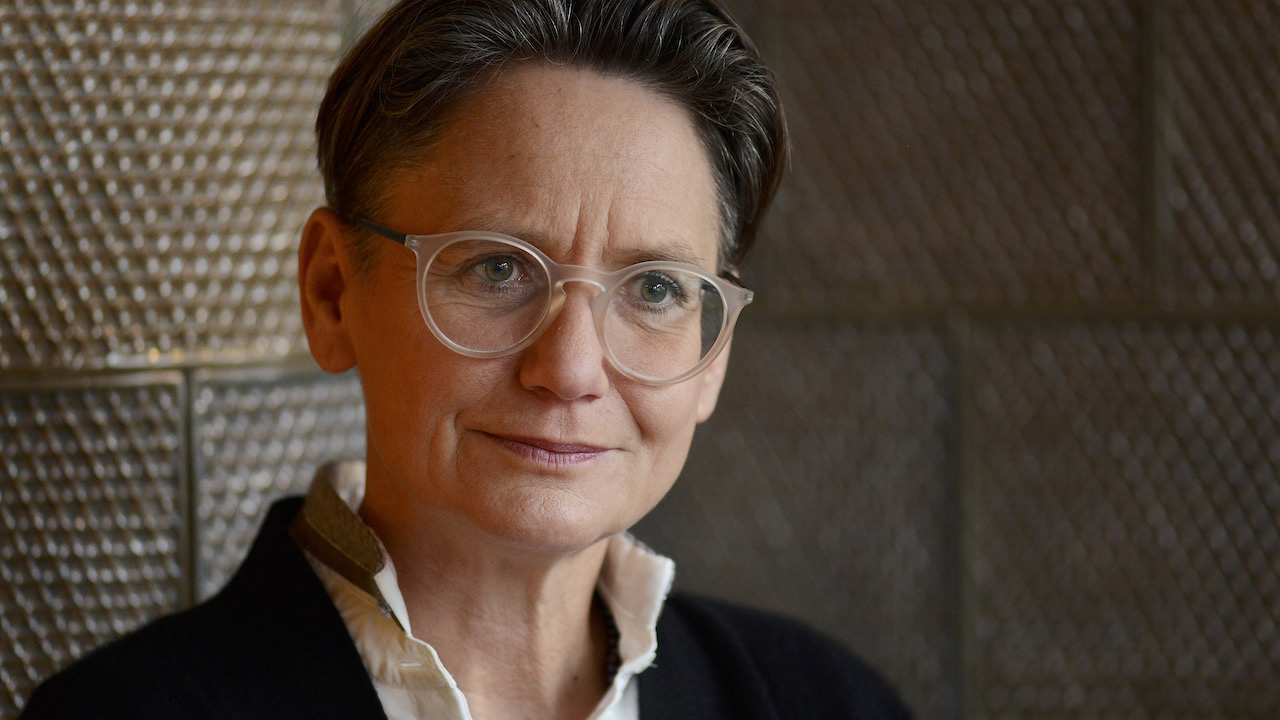Dieter Förster grew up in the Berlin district of Wilmersdorf. He had not even reached six years of age when the British Royal Air Force bombed the German capital on 16 January 1943. Around 140 RAF bombers, mainly heavy four-engine planes, dropped 370 tons of high-explosive and incendiary bombs, more than any previous attack.
148 people lost their lives and over 10,000 lost their homes on this cold night. Dieter Förster nods. During the bombing, the 83-year-old was crouched in the cellar of the main post office with his mother. “We could hear crashing, banging, explosions. When it was over, the city looked like modern-day Beirut. Our house was destroyed by a firebomb, people were desperately pulling belongings out of the rubble. The city looked like a sea of flames.” He falls silent. I’m gripped by his story. “Believe me,” says Dieter Förster, “it’s traumatising.”
The tall man was an only child at the time. His father, a police officer, was drafted into the SS at the start of the war and deployed to the Soviet Union. “We don’t know what he did while he was in Riga,” says Dieter Förster. “We did wonder later on why we never asked. Then I read that terrible things had happened in Riga. There were many camps, many sad stories.”
At the end of the war, mother and son continued to live in Wilmersdorf, a suburb of Berlin. “It was a relief when the British took over from the Russian liberators in the summer of 1945,” says Dieter Förster. At the time, his father fled Riga, tried to get back to Germany and ended up in a British prison camp near Hamburg. “He was imprisoned for one or two years. He was not allowed to return to Berlin because of the Blockade.” This was a difficult time, Dieter Förster remembers. All food had to be flown in. People were starving and living in poverty.
In 1949, when the Berlin Blockade was lifted, his father “came home from the war” and looked for a job as a carpenter. The 11-year-old enjoyed this time in his life. Soon after his father’s return, his sister Brigitte was born. Dieter Förster laughs. “She didn’t have it easy with me. I was 13 years older and almost like another parent. The years that followed were wonderful, full of hope. Things were looking positive. Everyone who wanted to work could find a job.”
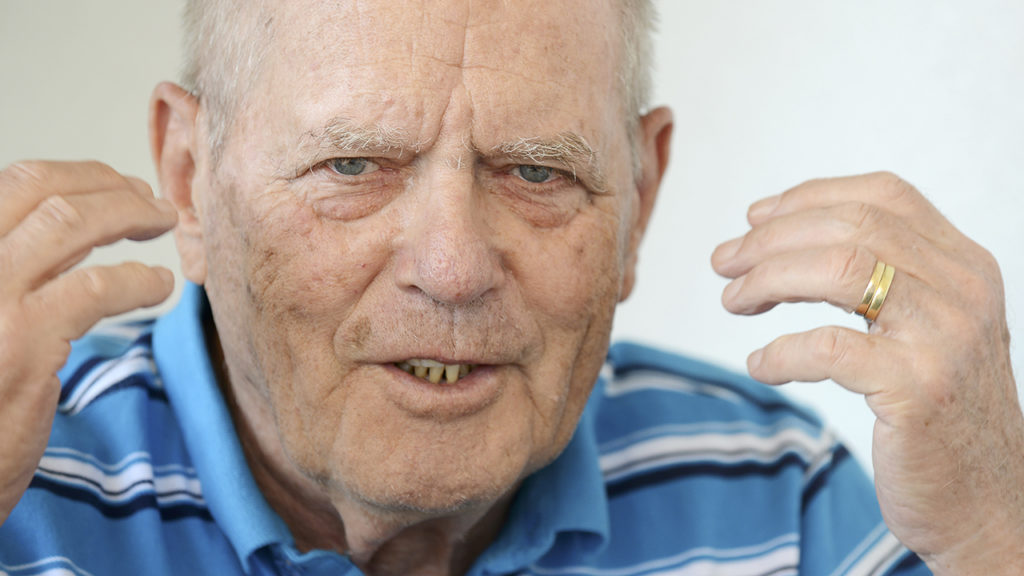
Dieter Förster lost his heart on Lake Zurich
Then came a key moment in his life. The young Berliner became involved in the Scouts and met a Swiss group while camping in Southern Germany. “We found them interesting,” smiles Dieter Förster. “We invited them to Berlin. That was in 1961, the wall had not yet been built.” Then the Swiss group returned the invitation. At Easter in 1962, the Berliners visited their “Scout families” on Lake Zurich. The youngsters were fascinated by Switzerland and all its beauty. “Even the station in Zurich was fascinating – the hustle and bustle, the happy people. Our Bahnhof Zoo was a poor sight by comparison.”
On the last night in a forest cabin in Stäfa and Hombrechtikon, he met a pretty blond girl. “I was absolutely blown away,” says Dieter Förster. “I was cheeky and pulled on her plait. We got on well. I was 24, she was 17.” He laughs and says “she showed me the cabin and told me she never wants to get married, never wants to run a household.” Later on in the car, he experienced his first bout of heartache. “What a fool I was, I didn’t even know her name.”
Letter to “Fuchs from Stäfa”
Once he arrived home, he, as leader of the delegation, sent a thank you letter to Switzerland and included a card addressed to “Fuchs, Stäfa”. And, lo and behold, Ruth Dubs replied. Over the next four and a half years, they exchanged hundred of letters. “I recently opened the box and read all of them. Quite impressive, really. We argued with each other, we loved each other. All from a distance. We were constantly sending letters back and forth.” When express letters were no longer quick enough, Dieter Förster began calling her. “This quickly became too expensive.” The couple could only see each other in person once a year when Dieter Förster spent his holidays in the South.
The graduate in electrical engineering knew very well: “I have to go to Switzerland.” He found a job in Zurich at the company “Albiswerk”, which was later acquired by Siemens. “They told me I could start straight away.” Ruth and Dieter got married in 1967 in the church in Stäfa, and the following spring, their daughter Sabine was born.
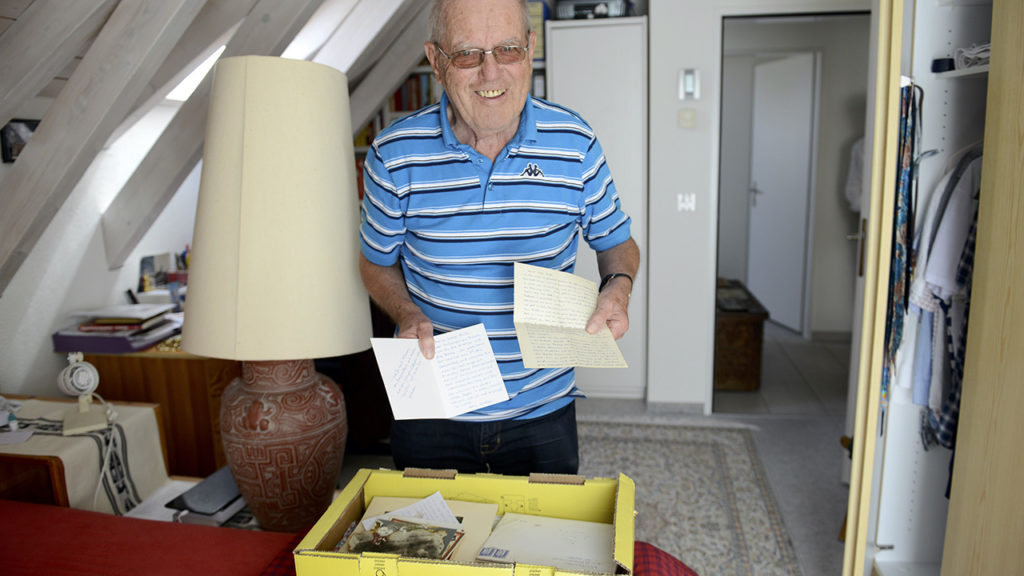
Travel plans after Ruth’s crisis
After Sabine was born, Ruth left her job as a primary school teacher. She became quite unhappy, being alone in a flat in a secluded district. Two years later, the family moved to Birmensdorf, Zurich, where their son Adrian was born. “During her pregnancy, Ruth felt hopeless,” says Dieter Förster. She despaired, saying that she couldn’t do it and became depressed. “We didn’t know what to do and contacted the “Helping Hand”. According to Dieter Förster, calling 143 saved his family. “Ruth received help from a blind man who was a kind of counsellor to her.” During this time, they realised that Ruth wanted to go abroad and wanted to travel. She inherited the wanderlust gene from her father. He once travelled to Ghana – by car – to visit his brother.
They both eventually developed a sense of wanderlust. Dieter Förster laughs. “She wanted to go abroad, and I said, ‘I am already abroad’.” But the electrical engineer could be easily persuaded. At first, the family wanted to visit South Africa. “Then I met an Argentinian manager at the Siemens headquarters in Munich. So I broke it to my family, who were waiting for me in the park, that we would be emigrating to Buenos Aires.”
The Förster family liked South America
Dieter Förster flew out by himself and the family followed a month later – by ship. The journey with two children was a genuine ordeal for Ruth. “We loved the idea of a romantic life in Argentina,” says Dieter Förster. He managed a development department. The political situation made life increasingly difficult. “After the state cancelled a cooperation agreement with Siemens in 1974 and directors were being threatened by insurrectionists, all Germans had to return home or go to another country.” Siemens as an employer offered the family man a position in South Brazil. “We moved to an area near the Iguazú Falls. That was the best thing we did while we were away. The children attended the international school, learned English, Spanish and Portuguese.” Ruth wanted another child – and her wish came true. “Our little ray of sunshine Philipp was born. A beautiful baby with blond hair,” says Dieter Förster, proudly.
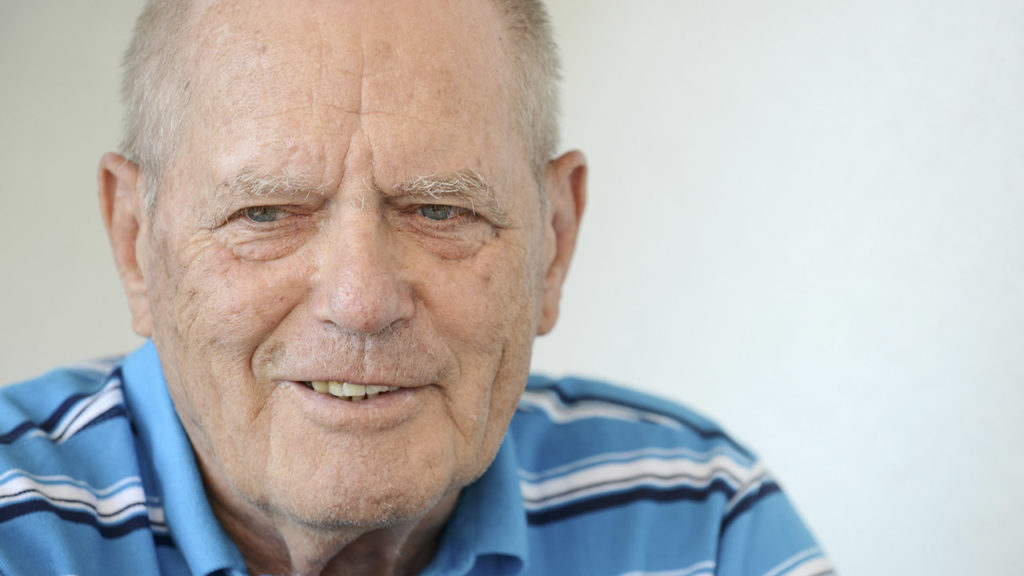
South America left a lasting impression on the couple
In 1978, the family had to return home after the development project was suspended. While the two older children flew to Berlin to visit their grandparents, Dieter and Ruth travelled through South America with Philipp. “We visited Chile, Colombia and Guatemala. Then we settled down in Zurich. I continued working at Siemens. We were financially secure. While in South America, Ruth was able to return to her passion of teaching. But this was not an option in Zurich. This was very difficult for her.”
South America left a lasting impression on the couple. A sermon in Brazil put the two of them on a path with Jesus Christ. Dieter Förster recalls that this was a very intense time. After spending many years in the Chrischona community, he found stability with the ICF, where he has been a member since 1996.
The couple rediscovered themselves in England
After the couple retired and the children had left home, they travelled to England for six months. Ruth attended a language course and suffered from health problems. Once she had recovered, the couple returned for England for a second time. “We found a nice flat, none of my fears came true. We integrated well into the community, experienced new things together very intensely. We rediscovered ourselves, our interests, our wishes.”
In England, the couple got to know the “Cru” (Camp Crusade for Christ) movement. The parachurch Evangelical missionary and training movement is committed to evangelism, adult education, social work and missionary work. The organisation works with all churches, such as the Reformed Church, the Roman Catholic Church and various free churches.
“After returning to Switzerland, we were entrusted with the project “Jesus Film”, and we were in charge of it until 2013. Ruth had so many ideas. She said we have to make a film about Switzerland. About its traditions and the Christian movement of the country. An investor gave us 50,000 francs and the film “More than Chocolate and Cheese” was created.” Today, more than 250,000 copies have reached interested viewers.

Ruth died surrounded by loved ones
Two years before the couple could celebrate their golden wedding anniversary, Dieter Förster experienced what he called the biggest tragedy in his life. He swallows hard, wiping tears from his eyes. “We were invited out to dinner. On Tuesday, 1 December 2015. I told Ruth I would get the VW Bus out of the garage and pick her up in front of the house. It was dark when I drove out of the garage and I stopped so Ruth could get in. I couldn’t see her anywhere. I started moving again and heard a loud noise under the car. My wife was lying under the car. I immediately called an ambulance. Ruth was still alive, she screamed ‘mummy’.” This was her last word.
They were at her bedside for fourteen days, says Dieter Förster. Her body was connected to tubes and monitors collecting data, she had several surgeries. “The team of doctors and nurses tried everything. We hoped and prayed for a miracle. On 15 December, everyone knew that the doctors could not pull her through it. Her heart or liver had had enough. We were sitting by her bed and agreed to stop all life-prolonging treatments. Ruth died on the same day at 70 years of age.” Her obituary read: “Her beautiful, generous heart stopped beating in the presence of her family. She has entered eternal life full of joy and splendour.”
“No one made me responsible for Ruth’s death.”
Hard times lay ahead for the grieving husband. He was questioned by the police, had to go to the morgue, answered countless questions from the prosecutors. Ultimately, it became clear that Ruth was already lying on the ground and her husband would not have been able to see her. “No one accused me. I didn’t notice that she was not well. We don’t know why she was lying on the ground, even though everything was investigated.”
Dying is one thing, death is another. Dieter Förster says, “We take what happens after death seriously, we were sure where we would end up. There is no pain there, no suffering. So we were able to let her go. It was good for her to go. If we had tried to pull her through it, she would have held it against us.”

“And suddenly, I was alone”
Dieter Förster: “I was at my wits’ end. I was drowning in problems. For half a year, I was on autopilot. I had collected what felt like a hundred pages of documents. Then I had to deal with inheritance issues. I was questioned several times. Finally, the prosecutors cleared me of any wrongdoing.” Dieter Förster said that his children told the police during questioning that he and Ruth had a symbiotic marriage.
Dieter Förster explains that Ruth came to him in a dream one time, she wore a black dress and looked at him through old eyes. Then she opened her arms. “That was my longing for death. And I wasn’t going to allow it, I still have time on this Earth, wishing for death would be ungrateful to God.” He found stability in his life, did not develop any addictions and did not hit rock bottom. “I was and am being carried.”
Dieter Förster does not like to look back on his time alone. “I had to do the laundry, I cooked like a bachelor. I could never live up to what Ruth did for me. One particular problem I had was shopping. I just ate aimlessly, it was difficult without a car, without an ID card. I bought a rail card and saw a lot of Switzerland.”
His wife wrote a will. They sought advice on this, Dieter Förster says. And today, his will is also sorted. “I have a will, an advance care directive and a patient decree.” He paused, looked me in the eye and said: “But those are just formalities. All of our children can provide for themselves. I recently moved in with my son Philipp and his family. They kindly took me in and are looking after me. I am ready to go into a home. And when the time comes, I will go. I do not want to be a burden to anyone.”
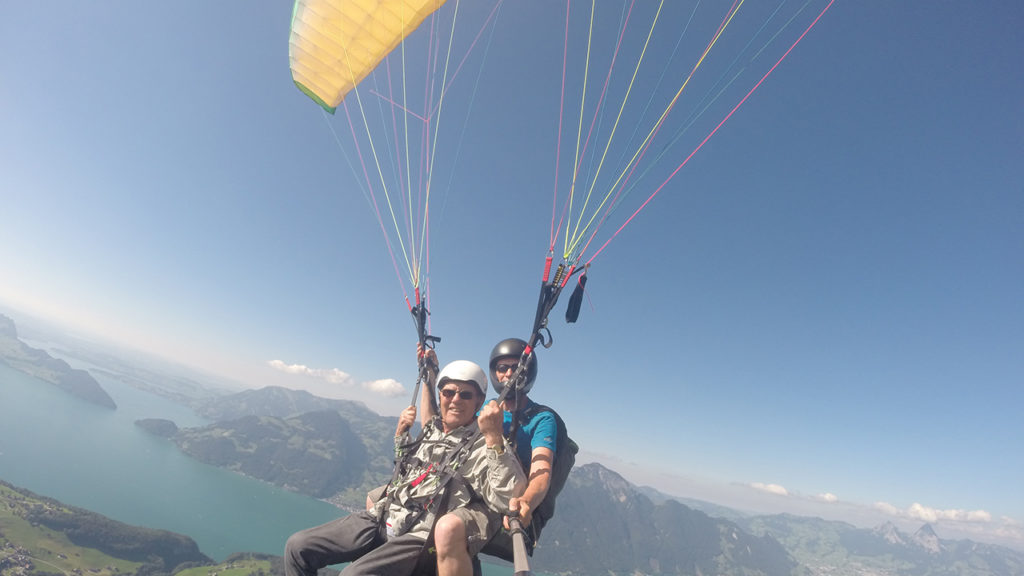
Dieter Förster has no fear of eternity
It took a while for Dieter Förster to let go of the question “why?”. He says he sometimes quarrelled with God. “But life must go on,” he laughs. “I have always wanted to go paragliding and Ruth always said no. After she died, I booked a tandem flight in Emmetten. It was a wonderful experience.”
Dieter Förster has no fear of eternity. “God is just, he gives us the punishment we deserve. But God is merciful. He says ‘You get more than what you deserve’.” He is grateful for the time he had with Ruth. He is thankful for his children, who are all in good health. They are doing well in life. And Dieter? He has everything. “I enjoy a level of prosperity that my parents never had.”
To sum it up, he quotes Hans Carossa: “What one is, what one was, When we part it becomes evident. We don’t hear when God’s way hums, We only shudder when it falls silent.”
Text: Martin Schuppli, photos: Paolo Foschini
The Helping Hand is a partner of Dein Adieu.ch. The profile
The Helping Hand – Swiss Organisation
Office, Beckenhofstrasse 16
8006 Zurich, Switzerland

